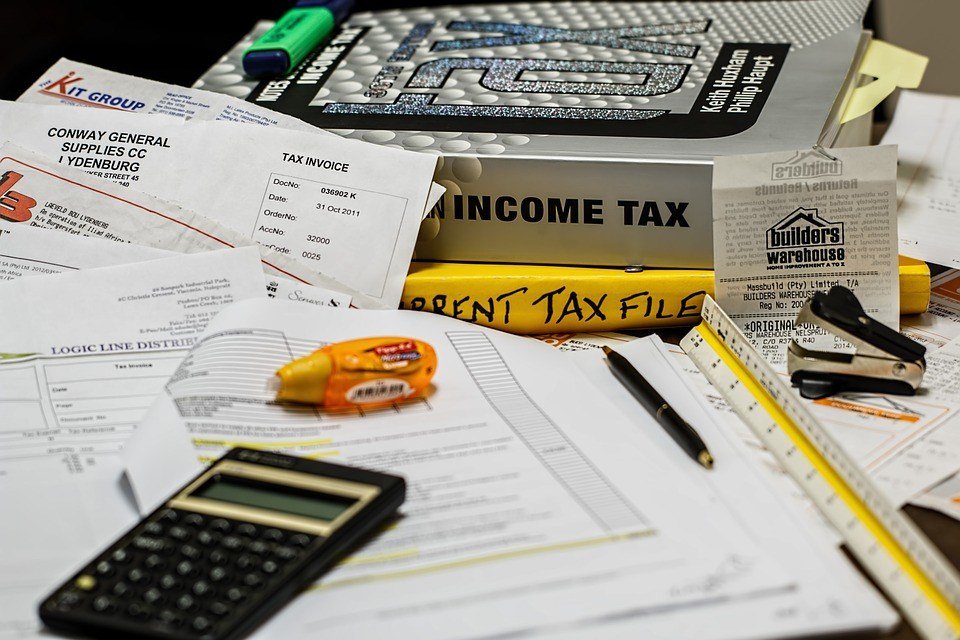Featured
A guide to investing in UK property for Americans
The U.K. is one of the most sought-after locations in terms of property investments. Here’s what you should know before you fancy yourself a cozy cottage.

When looking to purchase real estate overseas, you are likely to have looked at a number of different locations from around the world, and the U.K. is sure to be one of those locations. Over the years, the U.K. has been a very strong investment location for overseas investors, regardless of whether they have purchased a second home, a vacation home or real estate as part of an investment, with special thanks to the lack of restrictions on real estate ownership.
The process of buying U.K. property
When purchasing a U.K. property, the seller of the property will firstly employ estate agents to market and to sell their property, using various different methods to do so. Once the property has gained interest, any potential buyers would then view the property, gathering all of the relevant information for them to take away and consider.
If you would like to purchase the property at this point, you will inform the estate agent of your offer, providing all of the relevant information about your desire to buy. It is advised that at this stage you look to appoint a solicitor, particularly if your offer is to be accepted.
The solicitor acting on behalf of the seller will then draft the contracts, which are signed by both you and the seller of the property. Once the signed contracts are exchanged, and the deposit has been transferred, the two parties are both legally required to see through the property transaction. A completion date is then agreed, and it is upon this date that full funds are to be transferred.
At this point, you are now the owner of the property, and once it is registered at the Land Registry, the legal title is passed over to you. Stamp Duty Land Tax is then due within 30 days of the completion date.
U.K. property investment legal requirements
There are a number of different legal requirements related to buying a property within the U.K., and you will need to seek advice and support from a lawyer or conveyancer in order to complete your purchase. You will be required to pay a number of different fees, dependant on the location of your property and the type of your property, but your lawyer will indicate to you which fees you are required to pay.
Conveyancers will then work together to determine the details of the property transaction, informing both the buyer and the seller of everything that they need to know. During this process, either party can withdraw from the transaction.
Following the exchange of the contracts between buyer and seller, the buyer will be required to pay the set deposit amount, and this then makes the contracts legally binding, removing the option for anybody to withdraw. A completion date is then agreed between solicitors, with legal ownership of the property being transferred, as well as the remainder of the funds. Your solicitor is responsible for transferring the funds, so they should be transferred to the solicitor by you or the lender before the completion date arrives.
U.K. property taxes
If you are interested in U.K. property investment as part of an investment plan, there are a number of tax charges that you should be aware of before making your decision.
The U.K. tax system
When conducting research into the U.K. specifically as an investment opportunity, American investors may feel that the U.K. tax system throws up a number of stumbling blocks. In the U.K., there are five main taxes that you should be aware of.
Council tax
This is charged by the local authority that your property is situated in, and the amount at which you are charged is based on the location of your property and how much the local authority stipulates, as well as the price of your property.
Stamp duty
This is charged to you based on the purchase price of your property, with the percentage of tax ranging between one and four percent, with the higher percentage for higher valued properties.
Capital gains tax
If you are from the U.K., capital gains tax is charged on any profit that you make when selling your property. However, for non-U.K. residents, if the property is an investment property only, you will not be charged this form of tax.

Income tax is tax charged to the homeowner once the property he had acquired increased in value by the time he decides to sell it. (Source)
Income tax
An alternative to Capital Gains Tax, if your property is to increase in value when you come to sell it, you will be charged income tax for making money on your investment. However, if you were to live in the property as an owner occupier, this form of tax would not apply to you.
Inheritance tax
If you are an investor with property within the U.K., inheritance tax may be charged on your estate once you pass away, meaning that those inheriting your property may well be hit with a big charge.
All of the relevant taxes within the U.K. should come into your considerations when looking to purchase real estate within the U.K., especially as it can really impact upon the levels of profit that you are going to make. Council Tax and Stamp Duty should certainly be part of your calculations as they will definitely apply to you, but you should consider all of the taxes just to be certain about your investment. The UK is a fantastic place to invest, with many different locations offering fantastic investment opportunities to all types of investors.
Selling your U.K. property
Before your property is posted to the open market ready for selling, a Home Information Pack (HIP) must be provided, for properties within England and Wales, helping to reduce the number of sales that are aborted. If you do not supply a Home Information Pack or one that doesn’t include all of the necessary items, you will face fines of £200 ($282). The HIP must include:
– A sale statement
– A copy of the property’s title documents
– An Energy Performance Certificate
– An index
– Local Authority and drainage searches
– A property information questionnaire
Terms used within U.K. property buying
There are a number of different terms to be aware of during the process of investing in property, with some of the most common including:
Property yield
A calculation of how much your property may return, based on the rental income and the value of the property.
Capital growth
The increase in the value of your property over a period of time, based on an increase from when you purchased the property.
Gazumping
This is when the seller of the property has previously accepted an offer from a buyer but then accepts another offer from a different buyer that is offering more money for the property.
Gazundering
This is when the buyer lowers their offer in the hope that the seller will accept the lower offer, and is most common during the exchange of the contracts.
Conveyancing
This term relates to the preparation of documents for the transaction of a property.
Freehold
When the buyer owns the property and the land and has full responsibility for it.
Leasehold
When the buyer owns the lease on the property but does not own the land on which it is situated, and this is more common for apartments.
—
DISCLAIMER: This article expresses my own ideas and opinions. Any information I have shared are from sources that I believe to be reliable and accurate. I did not receive any financial compensation in writing this post, nor do I own any shares in any company I’ve mentioned. I encourage any reader to do their own diligent research first before making any investment decisions.

-

 Markets1 week ago
Markets1 week agoWeather-Driven Supply Outlook Lifts Coffee Markets in Brazil and Vietnam
-

 Business6 days ago
Business6 days agoTopRanked.io Weekly Affiliate Digest: What’s Hot in Affiliate Marketing [Best Technology Affiliate Programs]
-

 Fintech2 weeks ago
Fintech2 weeks agoFintech Alliances and AI Expand Small-Business Lending Worldwide
-

 Business1 day ago
Business1 day ago2.5 Billion People Watch Quiz Shows Every Day. Masters of Trivia (MOT) Is Letting Them Compete

























You must be logged in to post a comment Login